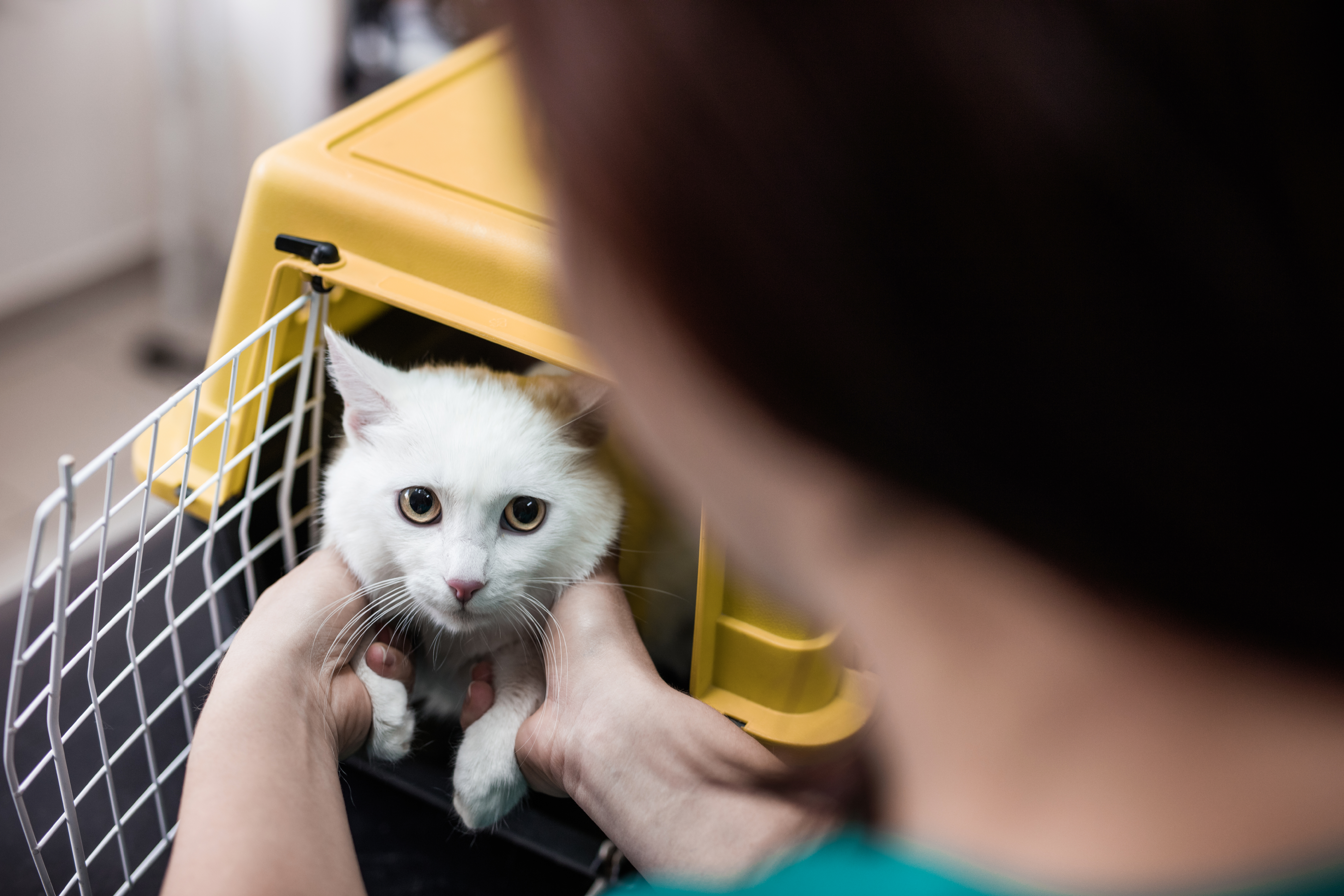Blog
How to Recognize and Respond to a Pet Emergency
 Every pet owner has been there; your pet has vomited or is acting strangely and you find yourself wondering what to do. You’re concerned about his or her symptoms, but struggle with whether or not your pet is in need of immediate medical attention. Some pet emergencies, such as broken bones or seizures, seem obvious, while others can be more ambiguous, leaving us questioning whether or not to seek veterinary care for our pets.
Every pet owner has been there; your pet has vomited or is acting strangely and you find yourself wondering what to do. You’re concerned about his or her symptoms, but struggle with whether or not your pet is in need of immediate medical attention. Some pet emergencies, such as broken bones or seizures, seem obvious, while others can be more ambiguous, leaving us questioning whether or not to seek veterinary care for our pets.
Animals are genetically programmed to hide obvious signs of illness or injury, making it all the more difficult for pet owners to determine when it is an emergency. Learning to recognize the signs of a pet emergency could make all the difference for your pet.
11 Warning Signs of a Pet Emergency
If your pet is experiencing any of the following signs of a pet emergency, please give us a call or bring him or her to the nearest emergency veterinary hospital:
- Trouble breathing—Excessive panting, coughing, or shortness of breath could indicate a medical emergency.
- Bleeding—Your pet should be seen if he or she is experiencing bleeding that doesn’t stop within 5 minutes, or is coming from the nose, mouth, or rectum.
- Trauma—If your pet has been hit by a car or other object, has fallen, or been attacked by another animal, bring him or her in right away. Even if there are no obvious signs of injury, there may be internal bleeding or injury that could quickly become life threatening.
- Eye injury—Even a seemingly minor eye injury can be quite serious, so please don’t wait to bring your pet in if his or her eyes have been injured or if you observe blood, discharge, or swelling near or around the eye.
- Elimination difficulties—Pain or difficulty eliminating, including not urinating/defecating for 12 hours or more, could indicate a blockage and should be addressed by a veterinarian immediately.
- Severe vomiting/diarrhea—If your pet is vomiting or having diarrhea multiple times per day, or if these symptoms are accompanied by other signs of illness, such as fever or lethargy, your pet will need to be seen.
- Pain/anxiety—Your pet may be experiencing pain if he or she is limping, having trouble standing or walking, or seems disoriented or anxious.
- Fever—A rectal temperature greater than 103 degrees is a potentially serious problem.
- Refusal to eat/drink—Bring your pet to the veterinarian if he or she has not eaten or had water for 24 hours or more.
- Foreign body ingestion—If you know or suspect that your pet has ingested a toxic substance or some other object, don’t hesitate to call us or bring your pet in.
- Birthing difficulties—Your pet may need help if he or she has been in active labor for over an hour without progress, or if it’s been longer than 3 hours in between babies.
Please call us if your pet is experiencing any of the above symptoms, or even if you feel that he or she is just “not right”. Time is of the essence when it comes to a pet emergency, and it’s always better to call for a consultation, even if the emergency isn’t immediately obvious.
Ten West Bird and Animal Hospital offers extended hours, 6 days per week, to meet your pet’s needs. If your pet is experiencing an emergency outside of our regular business hours, please call our main telephone number to hear recorded emergency instructions.
